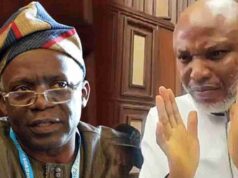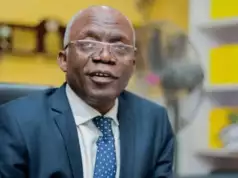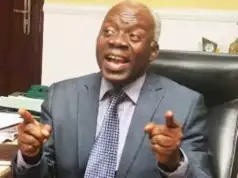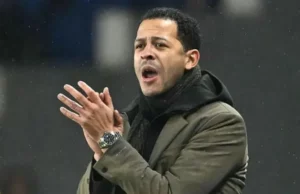The debate over whether or not to broadcast live the proceedings of the presidential election petitions tribunal has continued.
On March 24, the NBA president noted that a live telecast is in the interest of the people of Nigeria. Section 36 (1) and (3) of the Constitution of the Federal Republic of Nigeria provides that judicial proceedings should be conducted in public.
He said, “Providing public access to the proceedings would meet the aspirations of the public to participate in the process.”
Live broadcast of court proceedings has not been entrenched in the Nigerian judiciary system; although according to analysts, some panels and tribunals such as the Oputa Panel in the past had been conducted on live TV.
The rules of court prohibit use of electronic gadgets and recordings during a court proceeding.
Analysts say no rules expressly prohibit the live broadcast of proceedings in the judiciary in Nigeria provided there is court permission, as the National Industrial Court had in recent time live-streamed some of its proceedings.
The National Judicial Council (NJC) under Justice Tanko Muhammad had on May 5, 2020 brought fresh guidelines for the virtual sitting of the courts with platforms such as MS365, Zoom, Google Meetings, and other tools with electronic recording functionalities.
Although the guideline was produced as part of the COVID-19 Policy Report: Guidelines for Court Sittings and Related Matters, some of the provisions were expected to continue in the post-COVID era.
Earlier, the Attorney General of the Federation and Minister of Justice, Abubakar Malami (SAN), had in April 2020 announced new guidelines for the court proceedings, part of which includes TV broadcast.
“Digital platforms such as Sype and Zoom can be used. NTA stations across the country can be connected to courts to facilitate taking evidence as witnesses do not necessarily have to be physically present in court,” he said.
Reacting, Ali Zubairu Esq said the decision on whether to air live like the Oputa Panel or not rests with the justices of the Court of Appeal and the Supreme Court.
“While it is seen by NBA and other advocates that it will promote transparency as the general public will have an understanding on how justice will be dispensed and thereby dispelling rumours.
“This will go a long way in restoring confidence in the judiciary. But by and large, to telecast it live or not is the prerogative of the judiciary,” he said.
The executive director of Citizens Advocacy for Social and Economic Rights (CASER), Frank Tietie, said the provision of the constitution allows live broadcast except where there is need to preserve public order and morality in certain matters.
He said, “The courts had assumed a very important role in our lives; and then how do you expect a group of persons or a single person making a determination of what will affect a whole of things in the society, and you want that to be done practically in secret?”
Similarly, EMD Umukoro Esq said the court room or tribunal sitting venue is a public place and everything that takes place there.
He added, “The Nigerian people through the government set up the system. It is the public fund that is used to run the government; therefore, it is not negotiable to inform the people what goes on in court/tribunal.
“Flowing from the above and for advancing transparency, the proceedings in the presidential election tribunal should be transmitted to Nigerians so as to reduce the perception and growing anxiety over the outcome of same.
“This can be done with the camera facing the lawyers and witnesses without the justices.”
Also responding, Malachy Nwaekpe Esq wondered why the Nigerian judiciary system has not adopted the live broadcast of important proceedings like other countries, especially when the court is regarded as a public place.
“There are seat reservations for the press and that shouldn’t be just for observing. They should be allowed to cover live in all the stations. It will help the public see firsthand whatever is reported by the press. It is a fight for the press; not necessarily lawyers,” he said.
Reacting, human rights lawyer, Femi Falana (SAN), said the live broadcast of the proceedings of the election petitions tribunal would be “in the interest of our judges, and the public and it enhances the credibility of the judiciary.”










